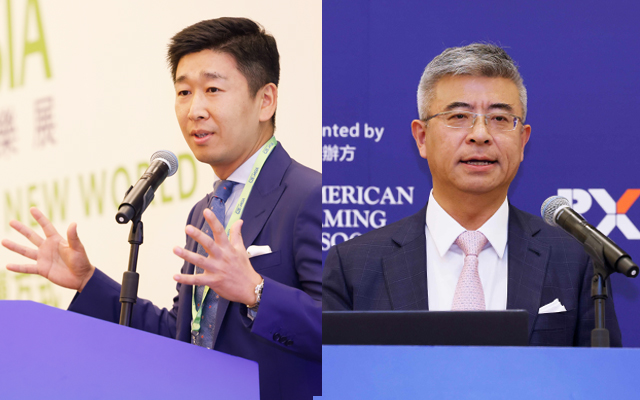Industry leaders at the Global Gaming Expo Asia (G2E Asia), held July in Macau, expressed optimism in the region’s potential for casino and integrated resort (IR) development, but acknowledged that the inclusion of multiple non-gaming features is necessary for business advancement.
The number of IRs with gaming facilities in Asia is set to grow with new additions in Japan and South Korea.

In April this year, the Japanese government approved a plan to open the nation’s first IR, to be developed by Osaka IR KK, a joint venture between MGM Resorts Japan and ORIX Corporation. The project, which is estimated to cost US$10 billion to develop, will be located on a reclaimed island in Osaka. In a joint press statement earlier on, Osaka IR KK said the IR will “transform the region into one of the world’s top entertainment and hospitality destinations and to serve as a hub for tourism across Japan”.
Speaking on a G2E Asia panel, MGM Japan’s president global development Ed Bowers said recruitment and training activities are now underway.
Over in South Korea, Inspire Entertainment Resort in Incheon is scheduled to soft-open in late 2023 and follow up with its casino launch in 1Q2024. Its COO Chen Si revealed that the company’s strategic vision, set a decade ago, was to develop the country’s airport hub into an international business and tourism centre.
To achieve a return on the company’s US$1.6 billion investment, Chen said diversity is key.
“This (ROI) can’t be achieved without non-gaming business,” he quipped, pointing to Inspire Entertainment Resort’s inclusion of a 15,000-seat arena, indoor water park, and various family-friendly facilities.
Chen said the arena aims to host 50 to 100 concerts each year, in support of the South Korean government’s aim to promote K-pop culture. The indoor water park is expected to attract the domestic family staycation market.
He expects a balanced 50:50 gaming and non-gaming business mix, with demand also streaming in from business event groups. “We already have regional events coming over from Singapore and the US next year,” he shared.

Melco Resort and Entertainment, COO, David Sisk, agreed that a successful IR required “a collection of experiences to bring in (people), not just gaming”.
MGM China, president and COO, Hubert Wang, added that the early movers in Las Vegas and Macau have had to continuously reinvent and elevate their infrastructure for “relevance in the market”, starting with gaming first and adding on business events and sporting events capabilities, for example.
In Macau, MGM China is diversifying properties into arts and culture – MGM Macau is said to be a cultural tourism-first property while MGM Cotai features an art gallery housing 300 pieces of work.
“Entertainment wise, we have developed some signature events throughout the years,” added Wang.
Panellists at the conference agree that Macau has a success story in IR development, and that the government policy to step up non-gaming aspects in these properties will foster a sustainable future for the hospitality sector. Under their new 10-year concessions, which commenced January 1, 2023, the six major IR operators have pledged to invest a total of 108.7 billion patacas (US$13.4 billion) into developing non-gaming projects and exploring overseas customer markets. The immediate result is a wave of high-profile concerts being staged in Macau.
Macau current leads the Asia pack in terms of gross gaming revenue, valued at US$45 billion with Singapore (US$6 billion), the Philippines (US$3 billion), South Korea (US$3 billion), Malaysia (US$2 billion) and Vietnam (US$1 billion) trailing behind, according to gaming and IR specialist 2NT8.
2NT8 expects Macau’s gross gaming revenue to hit US$60-70 billion in a decade.
Some panellists say Thailand is one to watch, as gaming development there may soon be legalised. They expect Thailand’s gross gaming revenue to hit US$7 billion, and pose a threat to gaming neighbours Macau, Singapore, Vietnam and Cambodia.
Credit Suisse managing director Kenneth Fong said: “In Thailand, the local market will provide a very steady cashflow for IR operators, in addition to the inbound Chinese.”




















